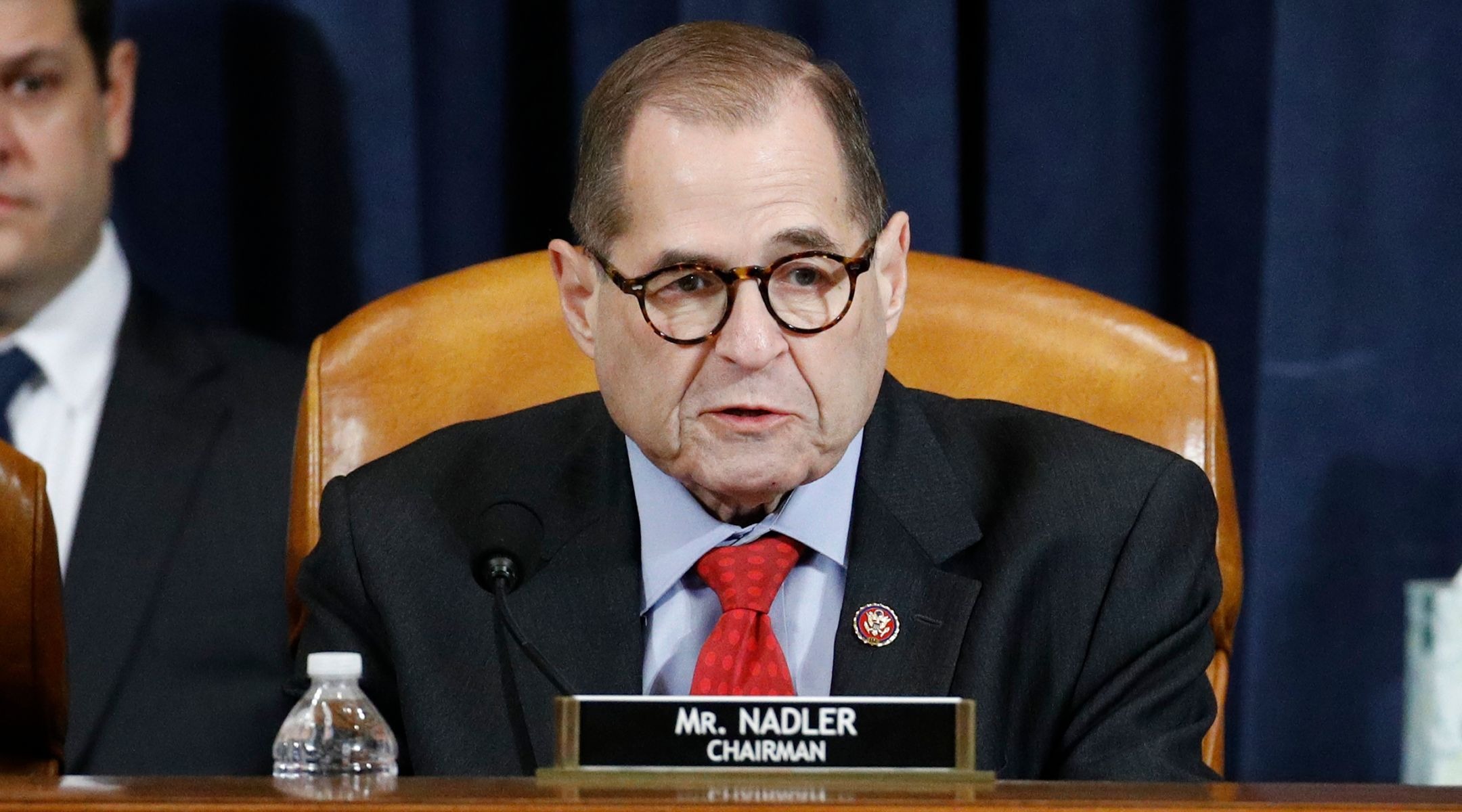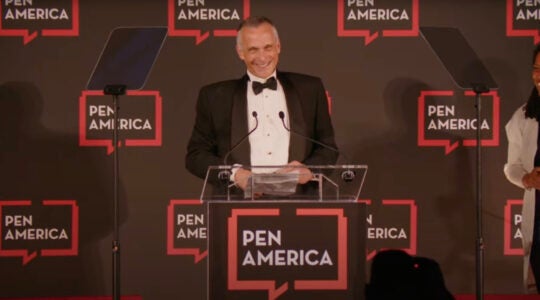Jerrold Nadler, the New York congressman who once came armed with a Zabar’s bag to a presidential impeachment hearing, will not run for reelection, he announced on Monday.
The Jewish representative also told The New York Times, where he revealed his decision to retire, that he planned to join the rapidly growing number of Democrats in voting against the continued sale of offensive weapons to Israel, citing what he said were “without question” war crimes in Gaza.
“I don’t know what to say at this point,” Nadler, a longtime pro-Israel stalwart, told the newspaper. “I can’t defend what Israel is doing.”
Nadler’s retirement will deprive Congress of its most senior Jewish member, and the only one to have received an Orthodox Jewish education. He was first elected in 1992 and will exit after 34 years representing one of the most Jewish districts in the United States, covering parts of Manhattan that include the Upper West Side of Manhattan.
Nadler, 78, had previously signaled that he planned to run for another term representing the 12th Congressional District. He had already drawn a challenger, a 26-year-old Jewish Rhodes Scholar and social entrepreneur named Liam Elkind who said in his launch video that Democrats needed to “confront the gerontocracy.”
Nadler said he had grown convinced by the idea that older members of Congress should step aside to make way for younger legislators at a pivotal time for American democracy. “Watching the Biden thing really said something about the necessity for generational change in the party, and I think I want to respect that,” he told The New York Times, referring to the former president who was pushed to end his reelection bid last year amid allegations of infirmity.
Nadler declined to comment on his potential successors to The New York Times, which reported that sources close to him said he favors his protege Micah Lasher, a state Assembly member from his district, to replace him. Lasher, who is Jewish, has not announced a bid for Congress. At least two other candidates are also planning to enter the race, City & State reported in the wake of Nadler’s announcement; the two it named are not Jewish.
Nadler maintained a reliably liberal record throughout his career, playing a role in legislation on gun control, same-sex marriage and immigration reform. He also broke with other Jewish lawmakers from New York in voting to support the Iran nuclear deal in 2015 after withholding his backing for weeks, citing his support for Israel and its security.
His star turn came near the end of President Donald Trump’s first term, when Nadler helmed the House Judiciary Committee. There, he served as manager for two separate impeachments of Trump, one over election interference in Ukraine and one over Trump’s role in the Jan. 6, 2021, riot at the U.S. Capitol that made Trump the first president to be impeached twice.
During the second impeachment trial, C-SPAN caught Nadler carrying a trademark bag from Zabar’s, the appetizing shop in his district, into Congress. After news organizations asked Nadler what the bag contained, the response came from his deputy press secretary Julian Gerson: “A babka and the constitution, what else?”
Gerson is now a lead communications staffer on the mayoral campaign of Zohran Mamdani, the 33-year-old democratic socialist. Nadler made waves by being one of the first establishment Democrats to endorse Mamdani after he won the party’s primary in June.
Nadler told The New York Times that he was “not terribly optimistic” about the future of democracy in the United States, with Trump at the helm again.
The day after Trump’s reelection, he had been among a crowd of Jews to congregate at Congregation B’nai Jeshurun, the Upper West Side synagogue where he is a member, for what one rabbi said was akin to “sitting shiva,” the Jewish communal grief ritual.
There, Nadler drew upon the Jewish education he received at the Crown Heights Yeshiva in Brooklyn, which he attended prior to being admitted to Stuyvesant High School, the elite public school.
“‘By the rivers of Babylon, we sat and wept when we remembered Zion. How shall we sing a song to the Lord in a strange land?’” Nadler said, quoting Psalm 137 and a spiritual frequently sung in American synagogues. “This seems like a strange land now.”
JTA has documented Jewish history in real-time for over a century. Keep our journalism strong by joining us in supporting independent, award-winning reporting.






